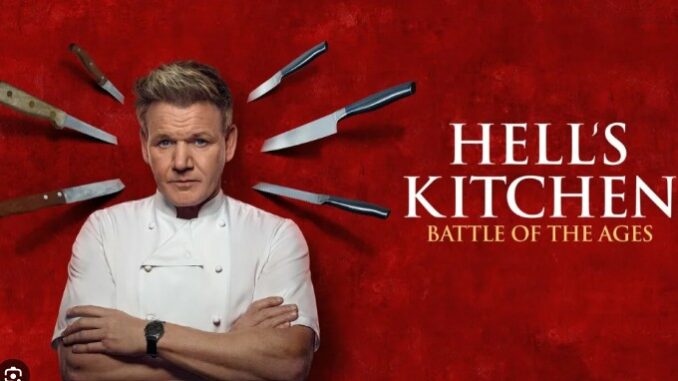
When you think of Gordon Ramsay, you probably picture fiery outbursts, Michelin-starred dishes, and that razor-sharp precision he brings to every slice and dice. But when it comes to kitchen knives — arguably a chef’s most essential tool — Ramsay says the secret to greatness isn’t in the blade itself, but in something far more overlooked: the handle.
In a recent conversation about his kitchen must-haves, Ramsay explained that while many aspiring chefs obsess over sharpness or steel type, the handle is what truly defines how well a knife performs in real-world cooking. “A great knife feels like an extension of your hand,” he said. “If the handle doesn’t feel right, it doesn’t matter how sharp the blade is — you’ll never be able to use it properly.”
That insight might sound simple, but it comes from decades of experience. Ramsay, who has trained in some of the world’s top kitchens and built a culinary empire spanning restaurants, TV shows, and cookbooks, knows that comfort and control can make or break a chef’s workflow. A poorly designed handle can lead to fatigue, uneven cuts, or even accidents — all of which can derail a meal before it begins.
According to Ramsay, the ideal handle offers balance and grip that align naturally with a chef’s motion. He advises cooks — professional or at-home — to test how a knife feels before buying. “You shouldn’t have to grip it too tightly,” he explained. “A proper handle will let your hand relax while giving you control.”
Of course, this isn’t to say the blade doesn’t matter. Ramsay still swears by high-carbon stainless steel for its durability and sharpness. But he emphasizes that even the sharpest blade becomes useless if the handle is awkward or uncomfortable. “It’s like wearing the wrong shoes,” he joked. “You can’t run a marathon in slippers, and you can’t cook all day with a knife that doesn’t fit your hand.”
Ramsay’s own knife line, which he developed in collaboration with professional craftsmen, follows this philosophy closely. Each handle is ergonomically shaped, built from durable materials that resist moisture and wear, and designed to feel balanced from the first chop to the last garnish.
Beyond the technical talk, Ramsay’s advice also carries a deeper lesson about the tools we use — in cooking and in life. It’s not always the flashiest or sharpest thing that matters most, but how well it fits you. “Cooking is about confidence,” Ramsay said. “When your tools feel right, you move differently. You cook better.”
So, the next time you shop for a kitchen knife, remember the chef’s golden rule: don’t just judge a knife by its blade — hold it, feel it, and trust the handle. After all, if it’s good enough for Gordon Ramsay, it’s probably a cut above the rest.
